Newly returned NASA astronaut Sunita Williams may have an unforgettable dinner story to tell her loved ones about her long, grueling nine months stuck in space — but it came with a price.
Now that the 59-year-old is finally back home, her family members have revealed how her smiling face, seen so often on camera, didn’t accurately portray how she was feeling.
Stranded aboard the International Space Station (ISS) since June 2024, Williams frequently talked about missing her family and the warmth of their touch.
Family members of Sunita Williams shared how mentally difficult it was during those nine long months stranded in space
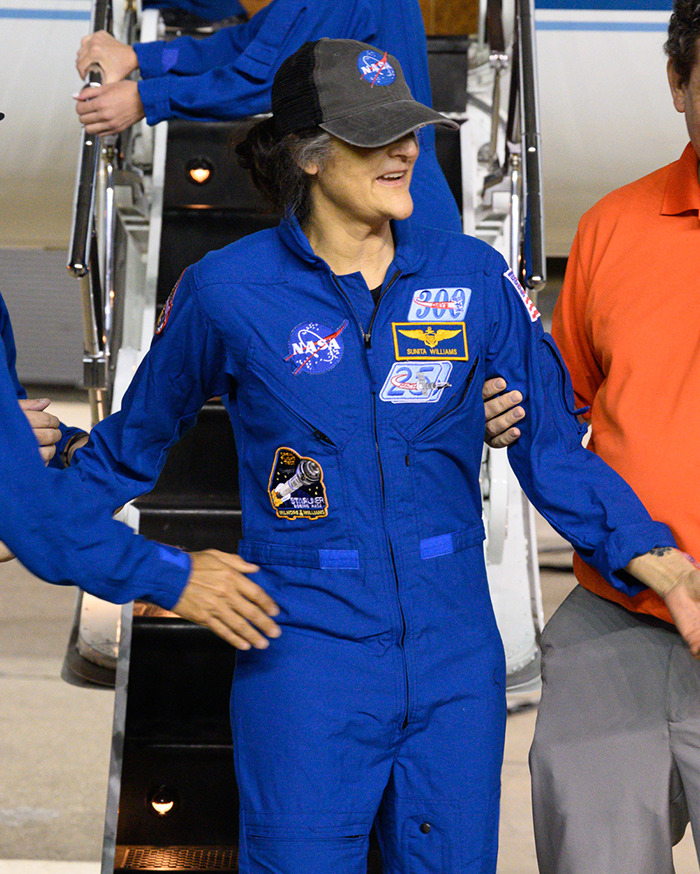
Image credits: NASA/Robert Markowitz/Helen Arase Vargas
Her sister, Dina Annad, revealed in an interview with local news station WCNC, that one of their private emails featured a heartwarming message.
“You forget that in space you’re not holding hands, you’re not hugging people,” Williams wrote.
To make up for this loss, they were “constantly meeting on Microsoft software” and celebrating holidays together. Additionally, they frequently sent her “gifts, cards, and photographs.”
She added, “[Williams] talks to her mother about every day.”
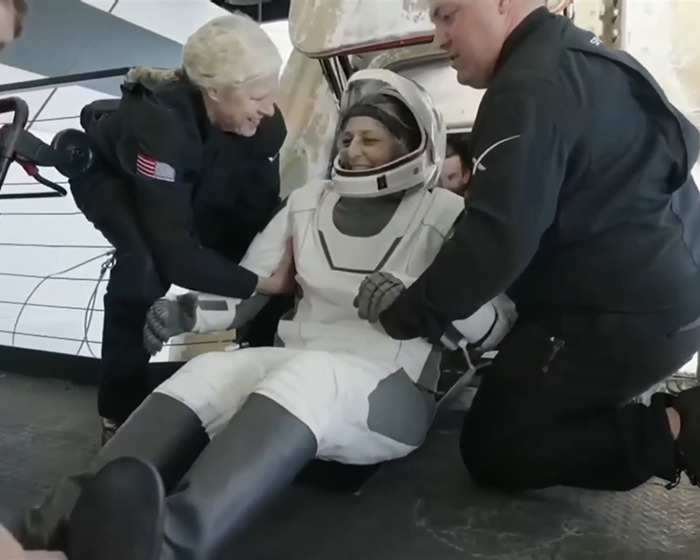
Image credits: NASA
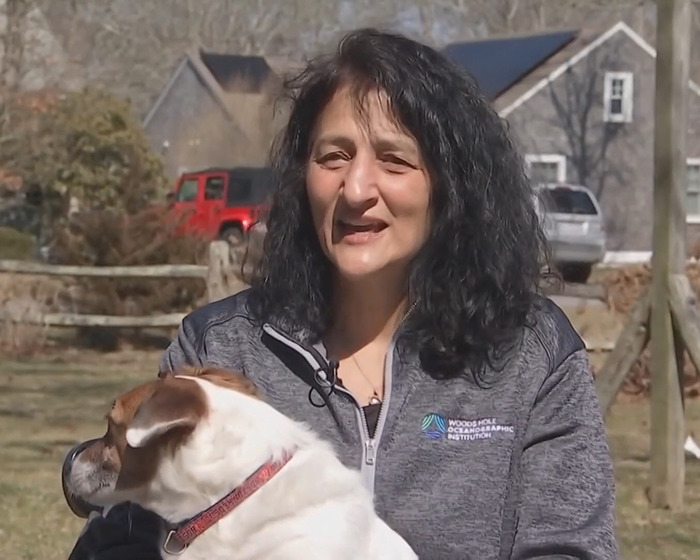
Image credits: WCNC
According to the astronaut’s cousin, what viewers saw on news broadcasts was true to Williams’s character and personality, but she also had a very “joyful” side she kept reserved for her loved ones.
“People have seen her giving speeches, people have seen her talk about intense topics and science and all that, but she really likes to laugh. She finds joy in the smallest of things to the point where you know it’s very infectious,” they shared.
Williams kept in touch with her family as often as she could
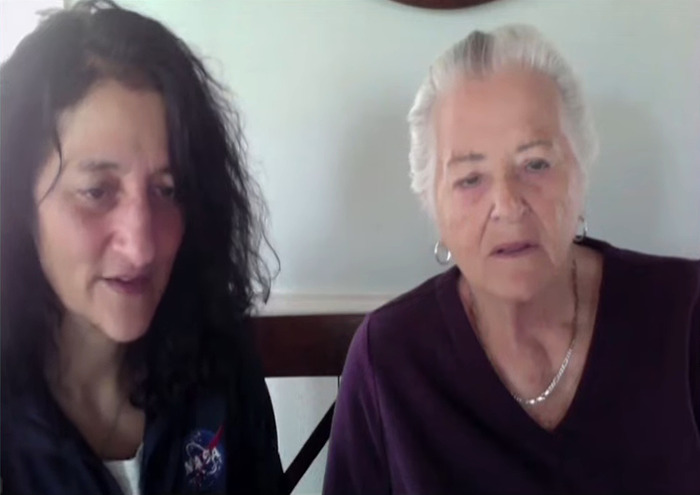
Image credits: India Today
Upon Williams’s return back to Earth, her mother, Bonnie Pandya, gave an emotional tribute to her girl, saying her friends and family have been “waiting and waiting.”
She said, “We missed you a lot, but with you keeping in touch with everybody and all of us, the family, we didn’t miss that much but just enough.”
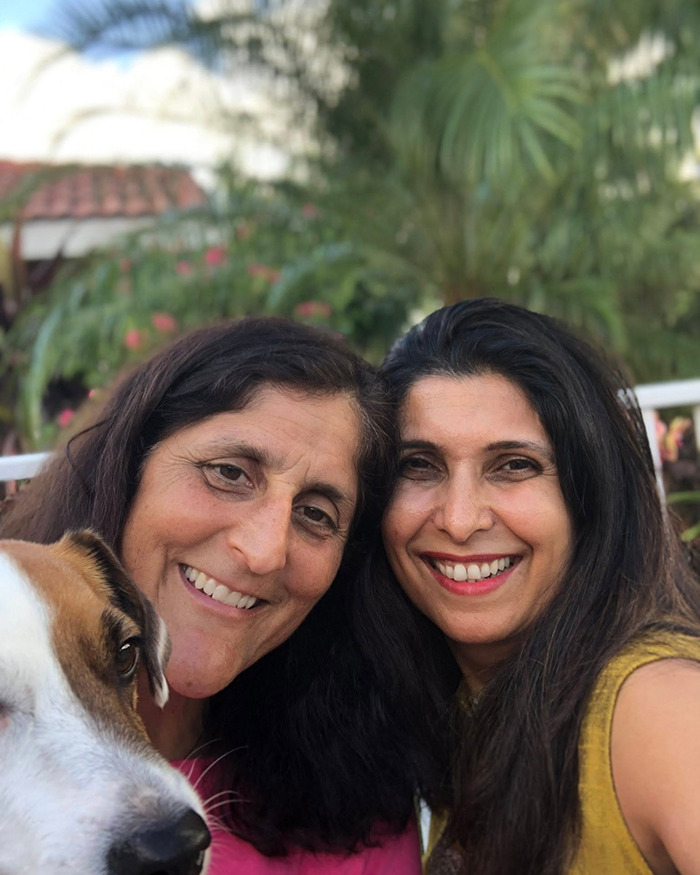
Image credits: Namaste Heritage
On June 5, 2024, Williams and her space partner, Barry ‘Butch’ Wilmore, blasted off, intending to reach the ISS, with their journey slated for eight days.
However, their starcraft began to experience helium leaks — pushing fuel into the propulsion system, which led to a breakdown in their thrusters.
Things were then delayed until Friday, March 14, when SpaceX launched Crew Dragon 10 from NASA’s Kennedy Space Center in Florida, there to retrieve the Crew-9 members, which consisted of Williams and Wilmore, as well as Aleksandr Gobunov and commander Nick Hague.
“She finds joy in the smallest of things to the point where you know it’s very infectious,” Williams’s cousin shared of her
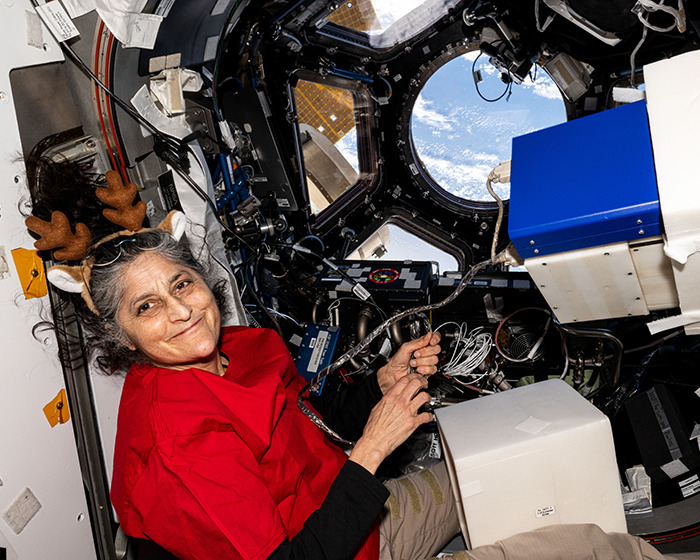
Image credits: NASA Johnson
Named Endurance, the Crew Dragon capsule was finally captured by the ISS just after midnight ET on Sunday, March 16.
“Houston, thank you for tuning in this early morning,” Williams announced to mission control. “It was a wonderful day. Great to see our friends arrive. Thank you so much.”
As the astronauts touched down on Earth, it was clear the physical toll space had on their bodies.
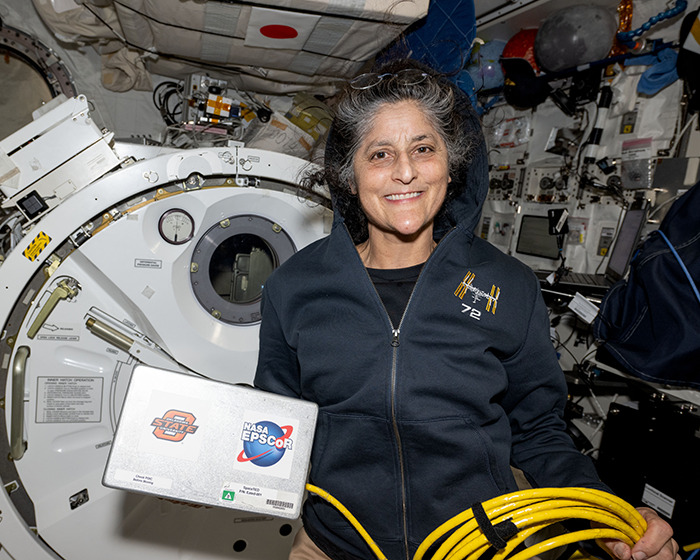
Image credits: NASA Johnson
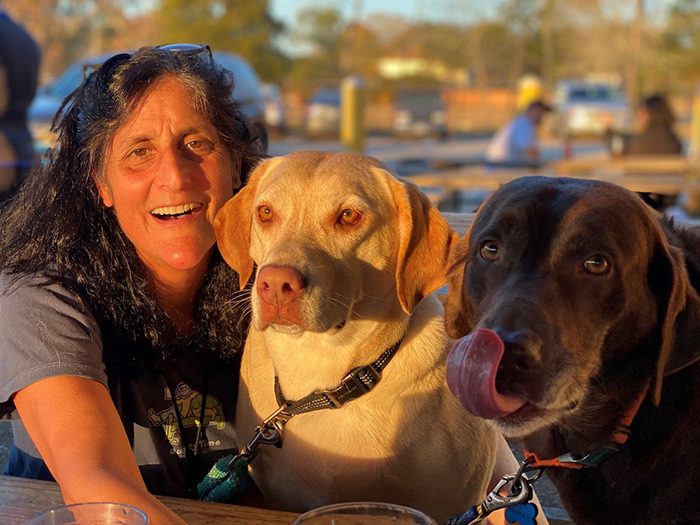
Image credits: Woods Hole Oceanographic Institution (WHOI)
Appearing much more frail and gaunt than normal — predictably so — doctors have pointed out that her “visibly thin” wrists may be a sign of rapid weight loss, muscular wasting in her arms, and bone density loss.
A photo released by NASA also showed an IV sticking out of the astronaut’s wrist, “most likely” an attempt to restore hydration and electrolytes, as microgravity can trick the body into eliminating necessary fluids, resulting in dehydration.
But both Williams and Wilmore were back on their own two feet less than 24 hours after their return, which was labeled a promising sign by experts.
Netizens were thrilled that Williams had finally made it back home
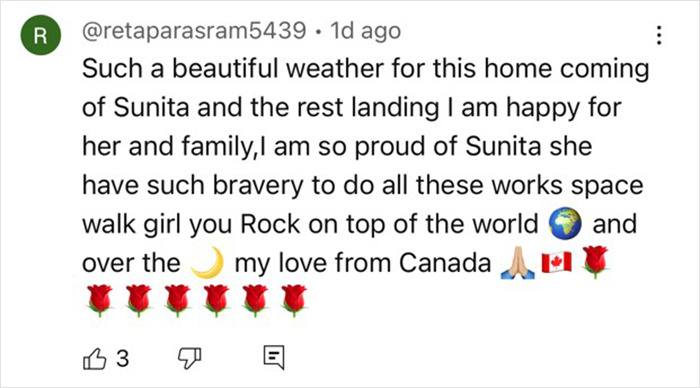









The post “I Cried”: NASA Astronaut Suffered Psychological Trauma While Stranded In Space, Say Family Members first appeared on Bored Panda.
from Bored Panda https://ift.tt/UnhT3cr
via IFTTT source site : boredpanda